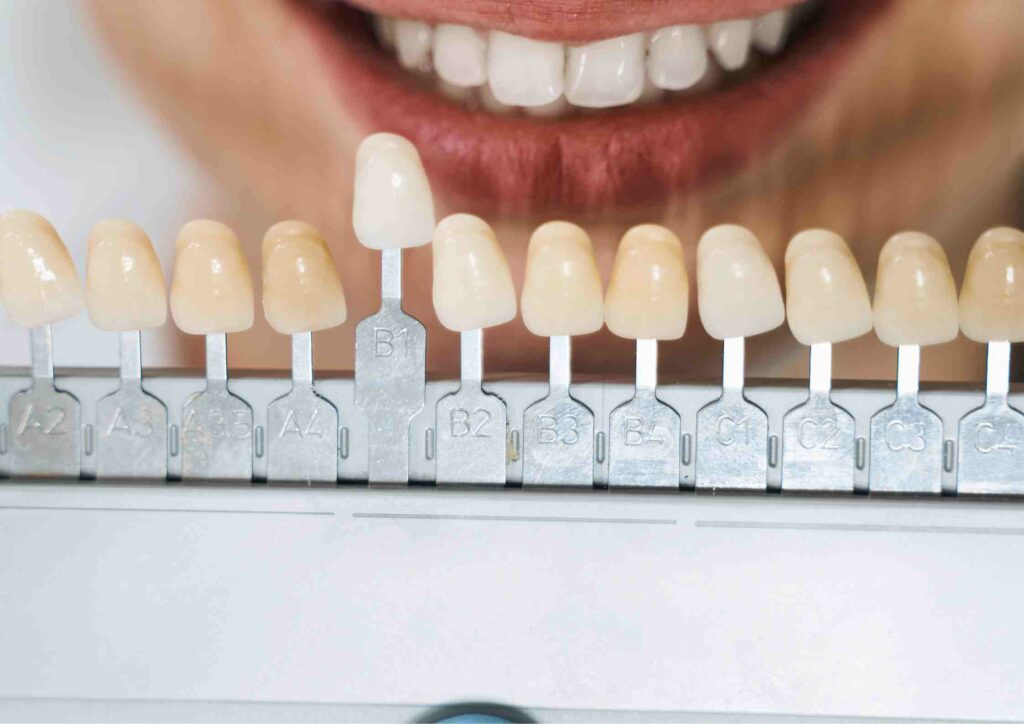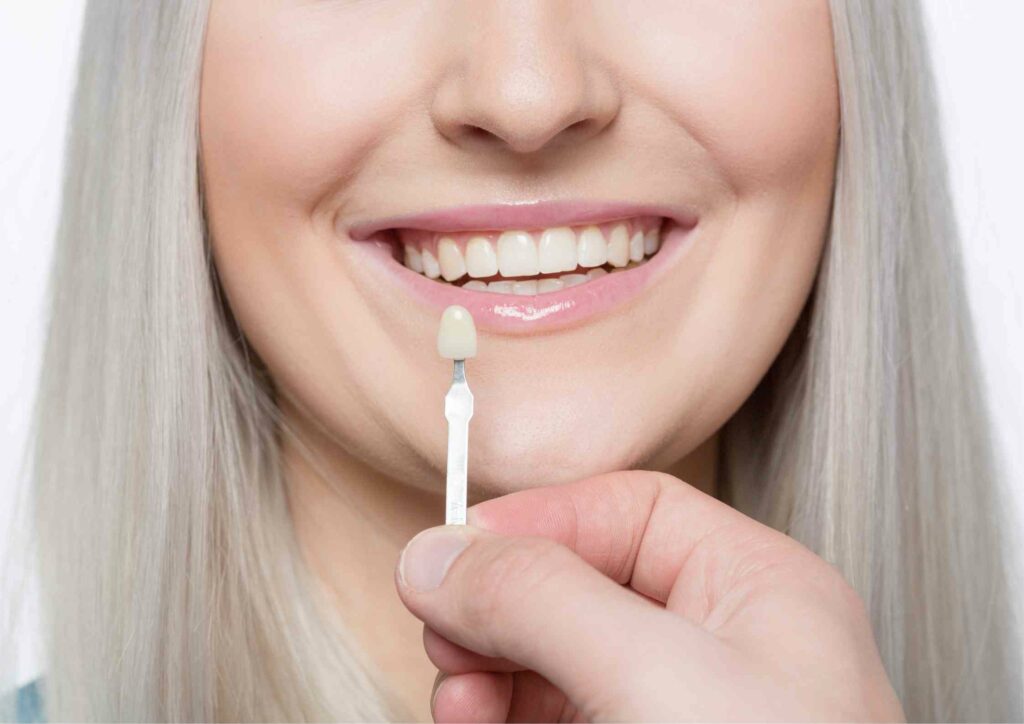We all want a smile that radiates confidence and beauty. For many, veneers emerge as a promising option to achieve this. However, opting for dental veneers is a considerable decision.
When considering veneers, you need to take into account more than just enhancing your smile; you need to consider the benefits and downsides of veneers and determine if they’re the right match for your individual dental needs.
The following information provides an in-depth look at veneers, particularly how they effectively address dental concerns such as discoloration, gaps, or uneven teeth. By the end, you’ll have the information you need to make a well-informed decision about whether veneers are the right option for elevating your smile.
Understanding Veneers: A Quick Overview
Veneers are thin coverings attached to the front surface of your teeth, primarily used to improve their appearance. They come in two main types: porcelain and composite. Porcelain veneers, crafted from high-quality ceramic, are known for their durability and natural look. They resist stains better and mimic the light-reflecting properties of natural teeth. Composite veneers, on the other hand, are made from a tooth-colored resin, similar to the material used in dental fillings. They are less expensive and can be applied more quickly (often in a single visit). Each type has its advantages, and choosing between them depends on your specific dental needs, aesthetic goals, and budget considerations.
Why People Choose Veneers
People choose veneers for various reasons, with the primary motivation often being a dramatic cosmetic change. Veneers effectively address several common dental issues. For instance, they provide an excellent solution for discolored teeth—whether due to medication, excessive fluoride, or large resin fillings that alter the tooth’s color. Additionally, veneers remedy worn-down, chipped, or broken teeth, resulting in a refreshed and uniform appearance.

Beyond these practical benefits, veneers also offer aesthetic advantages. They can close gaps between teeth, creating a seamless smile without requiring orthodontics. Furthermore, veneers assist in improving the appearance of misaligned, uneven, or irregularly shaped teeth, leading to a more harmonious and balanced overall look. Many individuals find that enhancing their smile through veneers significantly boosts their confidence and positively impacts their social interactions and overall quality of life.
Assessing Your Dental Health
Before considering veneers, it’s crucial to evaluate your overall dental health. Veneers are most suitable for individuals with generally healthy teeth and gums. If you have gum disease or severe tooth decay, or if you require extensive dental work, addressing these issues beforehand is necessary. A solid foundation is crucial because veneers are bonded to your natural teeth. Failing to address underlying dental problems can compromise their effectiveness and longevity.

Consulting with a dental professional is a critical step. A dentist can assess your oral health and determine if veneers are a viable option for you. They will check for adequate enamel, as a thin layer needs to be removed to place veneers. In cases where enamel is too thin or absent, other treatment options may be recommended. Additionally, your dentist can discuss lifestyle factors that might influence the suitability of veneers for you, such as teeth grinding or habits that could damage them. This comprehensive evaluation ensures that any decision made is in the best interest of your long-term dental health.
Veneers vs. Alternatives
When contemplating veneers, it’s vital to also consider other dental treatment alternatives. Each option comes with its unique benefits and suitability for different dental issues.
One alternative to veneers is dental bonding. Bonding involves applying a tooth-colored resin to the tooth and shaping it to correct cosmetic flaws. It’s generally less expensive than veneers and can be completed in a single visit, but it isn’t as long-lasting and is more prone to staining.
Dental crowns, another option, cover the entire tooth (unlike veneers which only cover the front surface). Crowns are ideal when there is significant tooth decay or damage, offering strength and protection. However, they involve more extensive shaping of the original tooth than veneers.
Teeth whitening is a simpler cosmetic procedure aimed at removing stains and lightening tooth color. While effective for discoloration, it doesn’t address issues like gaps or uneven teeth shapes, where veneers would be more suitable.

In situations where veneers seem like an overextension for minor cosmetic concerns, these alternatives could be more appropriate. It’s crucial to discuss with a dental professional who can guide you based on your specific dental condition, desired outcomes, and budget. Ultimately, understanding the differences and implications of each treatment option ensures a choice that aligns perfectly with your dental health and cosmetic goals.
The Long-Term Perspective: Durability and Care
Veneers, particularly porcelain ones, are celebrated for their durability—typically lasting 10 to 15 years (or even longer with proper care). Maintenance involves regular dental hygiene practices like brushing, flossing, and routine dental check-ups. However, it’s important to note that veneers are a permanent commitment; once your natural teeth are altered to fit them, there’s no going back. Also, while they are strong, they’re not indestructible—habits like biting nails or chewing hard objects can damage them.
Making the Decision
Deciding on veneers involves weighing personal factors. Consider your lifestyle: Are you committed to maintaining good oral hygiene and regular dental visits? Budget is another crucial aspect, as veneers can be a significant financial investment. It’s also essential to think about your long-term aesthetic goals and how veneers fit into that vision. Reflecting on these personal factors and discussing them with a dental professional can provide clarity, ensuring your decision is in line with both your oral health and personal preferences.
Your Path to a Brighter Smile
Veneers offer a transformative solution for many dental imperfections, but they aren’t the right choice for everyone. The journey to a perfect smile with veneers involves understanding their nature, evaluating your dental health, considering alternatives, and aligning the choice with your personal circumstances and goals. Armed with this knowledge, you’re now better equipped to make an informed decision about veneers. Remember, consulting with a dental professional is vital in tailoring this choice to your unique dental blueprint.





















